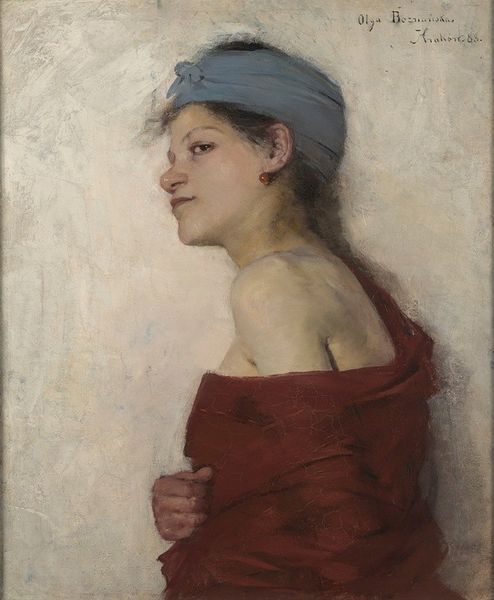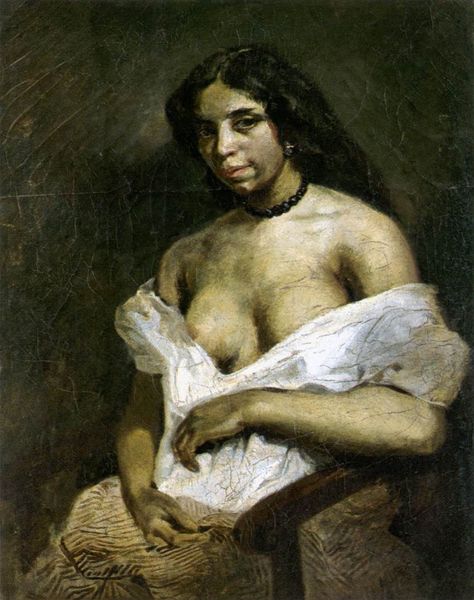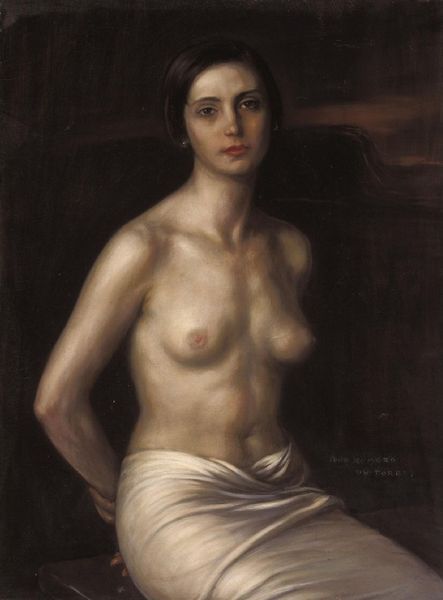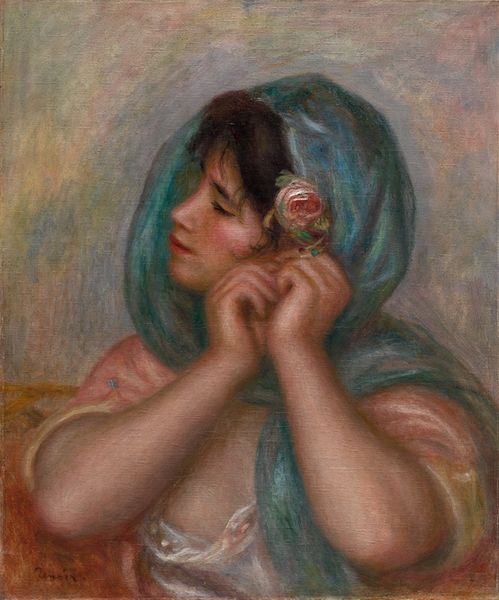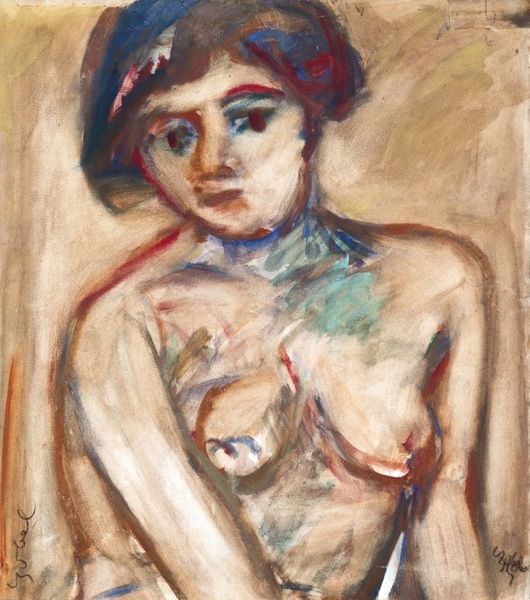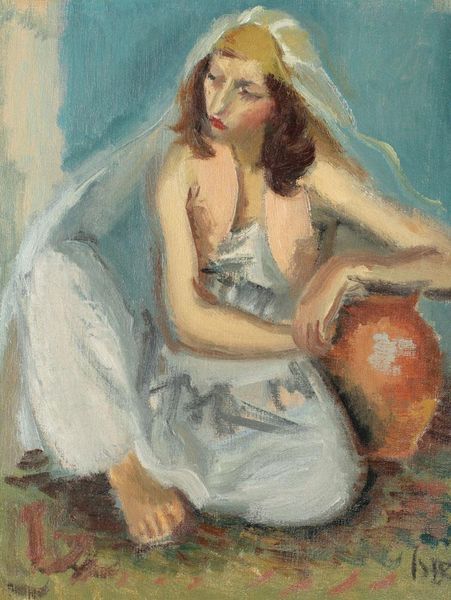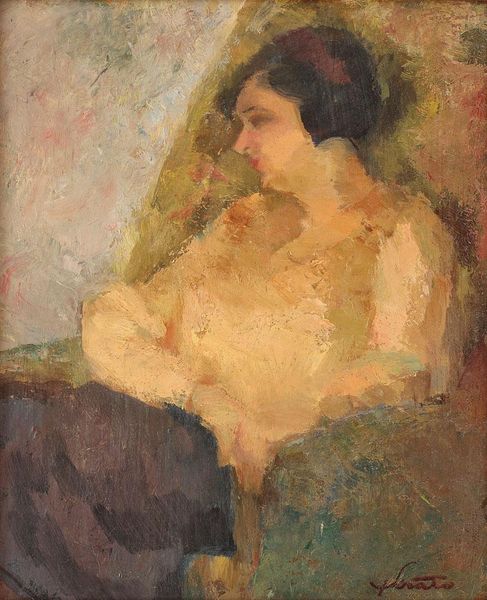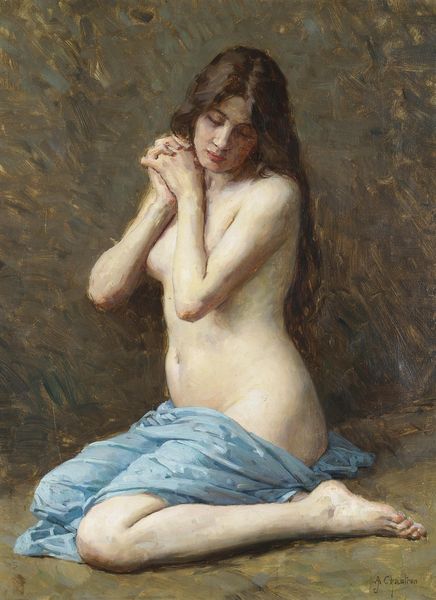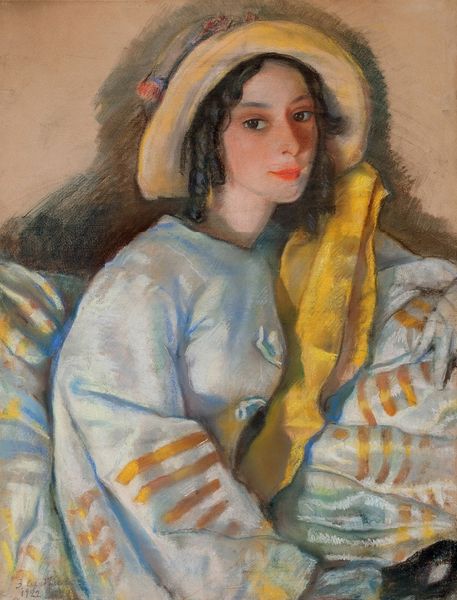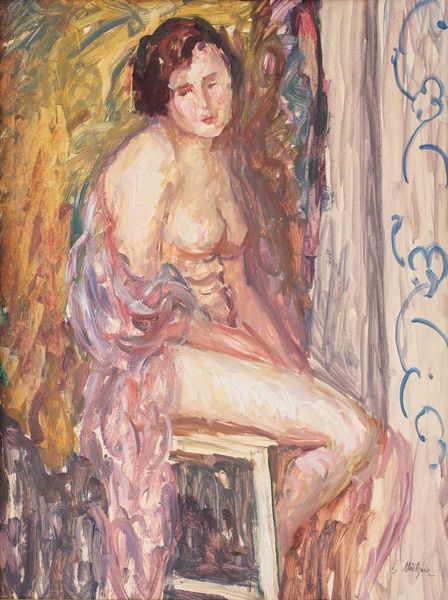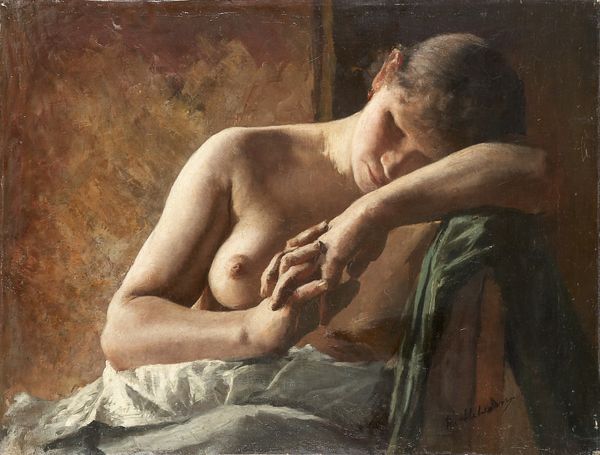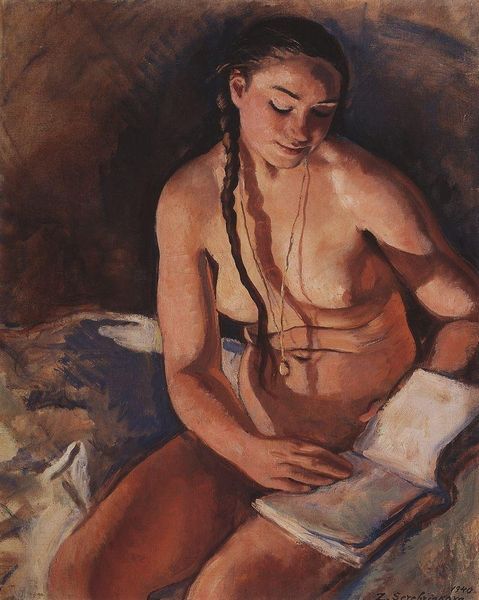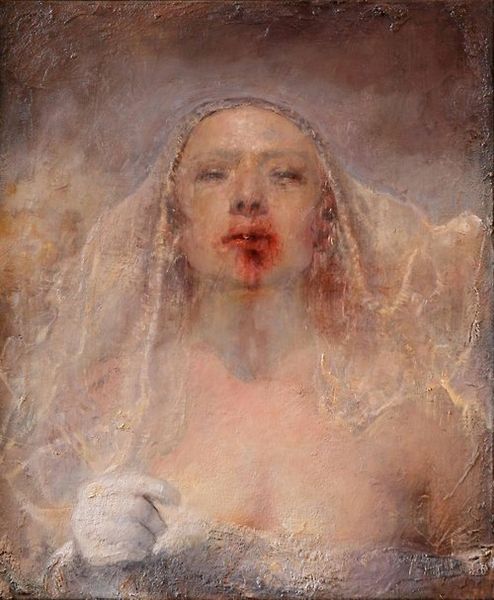
oil-paint
#
portrait
#
figurative
#
impressionism
#
oil-paint
#
charcoal drawing
#
intimism
#
expressionism
#
symbolism
#
nude
Copyright: Public Domain: Artvee
Curator: "Innocentia," painted circa 1890 by Lovis Corinth, is an oil on canvas that strikes me as a bold declaration, given the socio-political constraints placed on artists who depicted female nudes at that time. Editor: There’s a real tenderness in the rendering, though. The soft brushstrokes, the muted palette... despite the nudity, the overall impression is quite delicate and vulnerable. A veiled figure, almost hesitant, emerges from a hazy background. Curator: Precisely! The veil itself carries such heavy symbolic weight. Historically, veils signified purity, modesty, and sometimes even mourning. Corinth plays with these loaded associations, presenting us with a figure that simultaneously evokes both exposed vulnerability and sheltered innocence. Think of it in terms of psychology: is she concealing, revealing, or both? Editor: The title clearly guides us to the ‘innocence’ reading, doesn't it? And her pose, hands clasped protectively, almost defensively, over her chest, reinforces that idea. Yet, there’s a knowingness in her gaze. Is that a challenge or an appeal? Was it revolutionary at that time? Curator: Given the context, it certainly was transgressive! Consider how artistic nudes often served patriarchal fantasies of possession. Here, Corinth allows his subject agency; she possesses her own image. This shift signaled emerging, if still nascent, feminist ideals within artistic circles. Editor: I see your point. And the impressionistic brushwork further disrupts classical ideals of feminine beauty and form. She’s not idealized; she's palpably human, even a bit raw. This work seems to wrestle with complex questions of morality and representation. Curator: It embodies the Symbolist movement's penchant for layered meanings. Corinth isn't just painting a nude; he’s using the figure to explore abstract concepts like innocence, sexuality, and societal expectations. It's a potent reflection on the gaze itself. Editor: I now perceive it in the cultural context of its time; its intimacy conveys the dawn of an ideological change that slowly swept through social strata in subsequent years. I agree. It leaves me pondering the shifting meanings of “innocence” and the politics embedded within artistic representation. Curator: Ultimately, Corinth challenges viewers to reconsider the familiar symbolism and expectations that dictate how women were, and often still are, portrayed. The conversation, perhaps, will always endure.
Comments
No comments
Be the first to comment and join the conversation on the ultimate creative platform.

